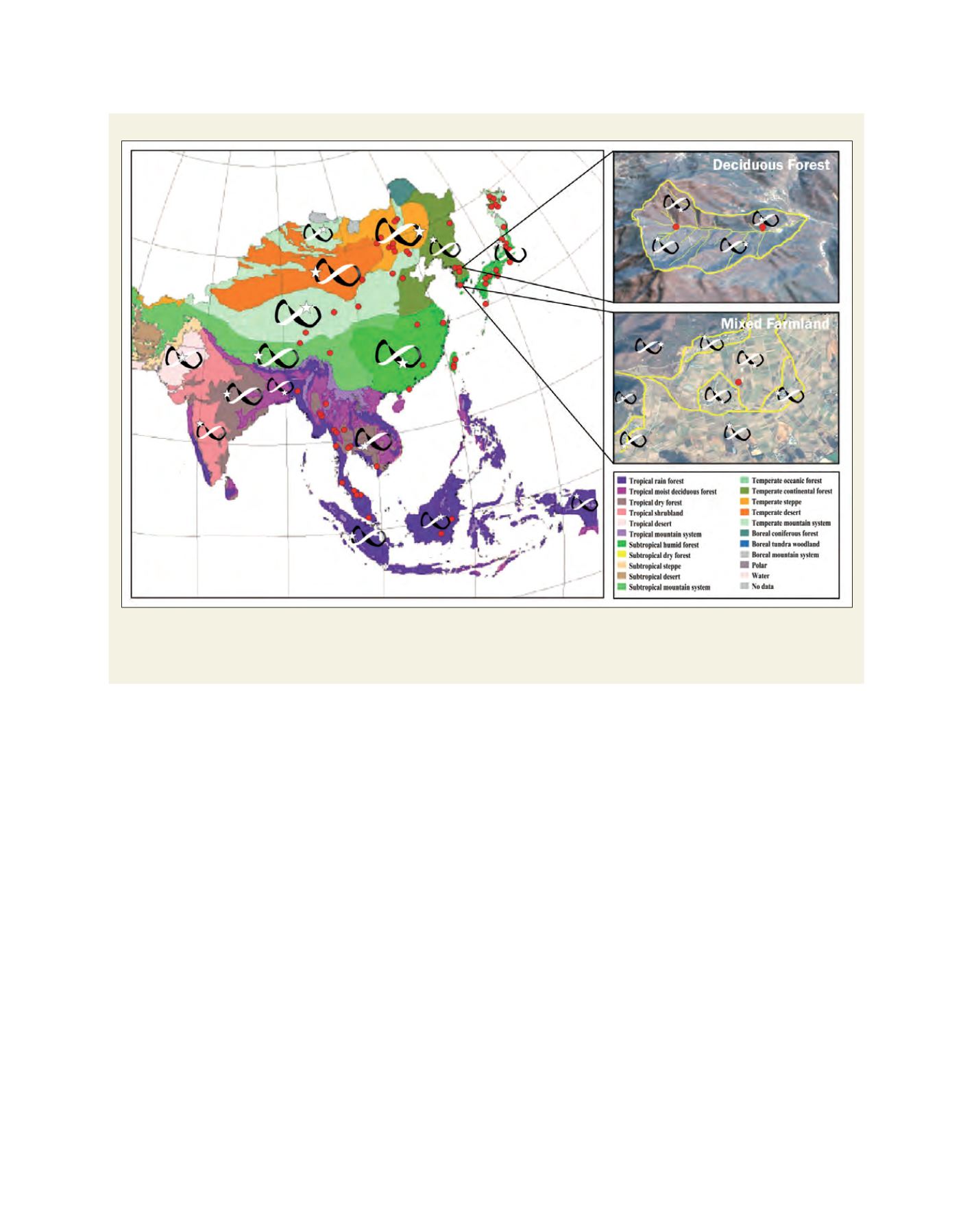

[
] 167
O
bserving
, P
redicting
and
P
rOjecting
c
limate
c
OnditiOns
sustainability requires resilience thinking – institutional capacity
to respond to environmental feedback, to learn and store under-
standing, and be prepared and adaptive to allow for change. In a
nutshell, resilience is the key property of sustainability and the
measure of vulnerability and adaptability.
7
AsiaFlux – science frontier
AsiaFlux is a science community with a mission to ‘bring Asia’s
key ecosystems under observation to develop and transfer scientific
knowledge to ensure sustainability of life on earth’. It is the Asian
arm of Fluxnet, the worldwide flux research network, and one of the
key components of the Global Earth Observation System of Systems
(GEOSS). The GEOSS vision is to provide the right information to the
right people at the right time to make the right decisions. The purpose
of AsiaFlux is to develop collaborative research and data sets on the
cycles of carbon, water, and energy in key Asian ecosystems. It also aims
to provide workshops and training on current and related global climate
change science and technology. Finally, AsiaFlux seeks to cultivate the
next generation of scientists with skills and perspectives to address
global climate change as informed leaders and stewards.
AsiaFlux has grown from a small network of independent flux
monitoring groups in 1999 to a multi-national science commu-
nity with 449 members from 28 countries. Currently, there are
109 tower flux observation sites in Asia and more
sites are on the way. The biomes covered in AsiaFlux
range from rainforest near the equator to tundra
in the Arctic and Antarctic, and from wetland near
sea level to grassland in high altitudes such as the
Tibetan Plateau.
AsiaFlux celebrated its ten-year science, service,
and stewardship in November 2008 by hosting the
7th International AsiaFlux Workshop in Seoul,
Korea. During this workshop, ‘Re-thinking global
change science: from knowledge to policy’, the
refined vision of AsiaFlux was launched to serve as
‘science frontier’ in carbon, water and energy cycles.
It aims to develop and transfer scientific knowledge
characterized by:
• Consilience – the synthesis of knowledge in holistic,
exploratory, pluralistic and perspectival ways
• Contextualization – the reformulation of scientific
knowledge in social and pedagogical context by
embracing its implications as well as the applications
• Cultural diversity – building resilience by welcom-
ing diversity and conflict, tolerating ambiguity, and
embracing paradox through teaching and learning.
Tower flux observation sites in AsiaFlux in different plant functional types in different phases
The various adaptive cycles illustrate that ecological and social memory is maintained in the system through the presence of different functional groups in
different phases. Two local sites, a deciduous forest (right top) and a mixed farmland (right middle), are shown to highlight the importance of integrating cross-
scale ecosystem knowledge with social practices and the historical profile of disturbances (e.g., drought, fire, typhoon, and land use change)
Source: AsiaFlux
(www.asiaflux.org)and Mizoguchi et al. (2009)
12
















